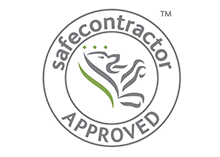

 Tiny insects that jump, and feast on us and our pets, the thought of having fleas in our homes or businesses is not something we welcome. Fleas find their way in to our homes in all kinds of ways – on pets, clothing or by tumbling out of birds’ nests that are close to our property.
Tiny insects that jump, and feast on us and our pets, the thought of having fleas in our homes or businesses is not something we welcome. Fleas find their way in to our homes in all kinds of ways – on pets, clothing or by tumbling out of birds’ nests that are close to our property.
Once they are in, they find themselves in the perfect place; warm and humid, they have a ready supply of food – blood – in the form of us and pets, if you have any. Laying eggs in a grand scale, they make their way through our homes or business, finding that our soft furnishings, from carpet to scatter cushions, make the perfect place to live and breed.
Getting rid of fleas – marathon, not a sprint
Apart from itchy bites, fleas do not present too much of a hazard to our health. However, if they are allowed to multiply to gargantuan proportions, they can cause a deep reaction in pets and in humans.
Understanding the flea life cycle will give you some idea of how the cycle needs to be broken with treatment but also how infestations can happen again and again.
Some people use powders or sprays, leave for a few minutes and then vacuum but this may only remove the adults and the emerging young. Deep inside the fibres of the carpet and other materials, the eggs may be lurking; eventually, these will hatch and just when you think you have successfully treated the fleas, you will see another one jumping along the carpet or hopping about on your pet dog.
Help is at hand
Rather than struggling with sprays and powders, vacuuming for weeks on end, call in the professionals. Some customers are embarrassed by the presence of fleas in their home or business, but there is no need to be for fleas are not attracted to dirt or poor hygiene.
Flea treatments need to be applied and then left for a period of time, usually the life cycle of the flea so that any emerging eggs and larvae can also be killed by the chemicals. Once these stage is complete, the deep and thorough clean can begin, including washing of items at 60° or more. Anything that cannot be washed should be frozen for a period of time, as this kills eggs too.







